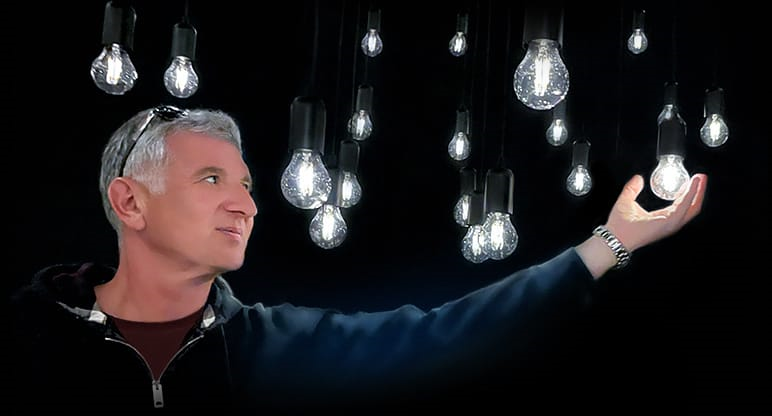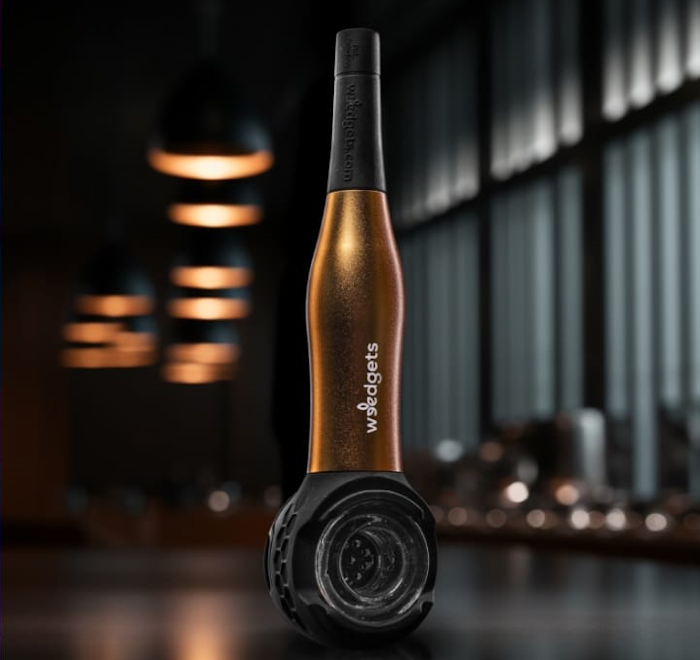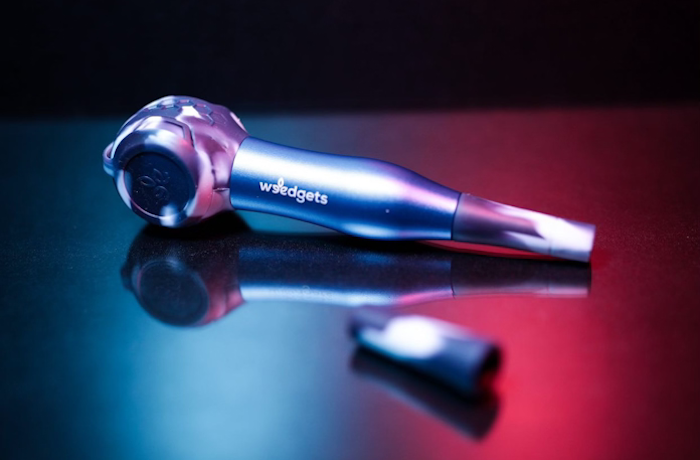BYOD: Build Your Own Device
By Michael Barenboym, Founder, Weedgets
Innovation happens when people try to come up with meaningful solutions to existing problems. One of the biggest breakthroughs in the industry over the last 15 years has been vaping, which exists because of the cigarette industry. I was lucky (or unlucky) enough to work on electronic cigarettes because the companies developing them claimed that the worst part about smoking is the temperature of the smoke. People tried to attack the temperature of the smoke for a long time – and that’s how electronic cigarettes appeared.
Because of my background in the medical device field, I saw that there was a similar problem for cannabis. I’ve done a lot of work developing devices for congestive obstructive pulmonary disease (COPD) and asthma and emphysema, and in the cannabis space I saw an opportunity because nobody was addressing those issues. We were the first ones to start addressing safety in consuming cannabis through inhalation by introducing rigorous filtration because we want to take as much as possible from the smoke that is not necessary for your enjoyment or for your medical needs.

All of this has taken on significant importance over the last few weeks as the United States federal government is on the brink of reclassifying cannabis as a schedule III drug after more than 50 years as a schedule I drug alongside heroin and other “hard drugs.” Significantly, this move will also recognize the health benefits of cannabis, which makes healthy delivery of THC, and other compounds even more important.
Ralph Waldo Emerson famously wrote, “Build a better mousetrap, and the world will beat a path to your door.” And even though he lived in an era before electricity, telephones, and computers, Emerson’s words are at the core of innovation because they encapsulate the essence of technological progress: people want new and better products. This is true in every industry, and companies that rest on their laurels aren’t going to succeed in the long term. That’s why Peter Drucker, the godfather of management consulting, coined another phrase that neatly bookends Emerson’s words: “innovate or die.”
What does this have to do with cannabis? In a word, everything. That’s because clever scientists and inventors are always coming up with new ways to design new cannabis smoking devices. When I think about the last 20 years, I am truly blown away by the ingenuity that this industry has generated. But at a certain point, I decided to apply my background as a mechanical engineer with more than 70 patents to solve a critical problem: delivering cannabis safely and effectively. In other words, I wanted to build a better mousetrap, because sometimes when you don’t see the perfect product on the market, it’s an opportunity to create something that has never been created before.

What Is Innovation?
When most people think of technical progress, they think of white-coated scientists in a lab working on the latest products. While that does happen, innovation actually starts long before the first designs are sketched out or the first prototypes are built. That’s because invention isn’t just about coming up with something cool – it’s about identifying a problem and then solving it. This is a critical step, because the road is littered with the remains of companies that built great products but failed to find real-world applications for them. You never want to be a solution in search of a problem.
Because of my background in biomedical engineering, I looked at the cannabis industry and saw that even though there were many different products on the market, such as weed pipes, designed to help people ingest cannabis, most of them didn’t have the safety standards that other medical devices do. For example, inhaling 700-degree smoke just isn’t good for our lungs. I also found that many of the devices do not deliver the proper amounts of THC, CBD, terpenes, and other compounds. So rather than trying to make a cool device, I decided to work backwards from these vexing problems to come up with a solution.
I wanted to 100% focus on healthy inhalation, but when I did my initial research, I found that no one else was really prioritizing this. By no means do I want to imply that all of the other products on the market are bad (I own many of them myself!), but it didn’t feel that they were designed from the bottom up with health in mind. This goes back to the mousetrap analogy. I didn’t want to just create incremental improvements on existing products; rather I wanted to create a novel way to take cannabis.
My team and I employed a rigorous scientific approach by looking at every aspect of how existing devices and methods work because we wanted to figure out where the pain points were. Millions of people ingest cannabis every day, and we wanted to determine how to make the experience better for them. And what we found is that people are inhaling cannabis that is so hot that it actually causes harm. THAT became the problem that we wanted to solve, because we felt that if we were able to develop a product that eliminated this single issue we would “crack the code” and revolutionized cannabis delivery.
This goes back to the essence of innovation. We could have created an incredibly complex Rube Goldberg device with lots of bells and whistles, but instead we shrunk our world (rather than expanded it) because we felt that solving one critical problem was a better approach than trying to make many incremental improvements. And we felt that the temperature problem was big enough to justify putting in years of R&D to solve. Without this sense of confidence, we probably would not have moved forward. That’s because innovation is expensive and emotionally draining, so if you don’t have full confidence in what you are doing, it might be worth spending your time on something else.
If you go to any shows, you will see most of the products being displayed are vapes. I think it’s very important to say that this industry is stagnant because everybody’s chasing dollars, everybody’s chasing vaping and nobody’s paying attention to making it safer. It’s all about the glass. It’s all about the design. It’s all about vaping, different designs, and different technologies. I come from a medical device background and that’s my focus, and that’s the only focus I have is how do we make it safer. That’s literally what I wake up thinking about in the morning, and it’s what is on my mind at night. How do we build a better mousetrap that will make it safer to ingest cannabis.

Michael Barenboym is the founder of Weedgets, which manufactures pipes and accessories to help people safely experience the medical benefits associated with the natural cannabis plant and all of its healing properties. A world-renowned medical-device engineer, Michael spent more than 30 years developing life-saving technologies. He holds more than 100 medical patents.






